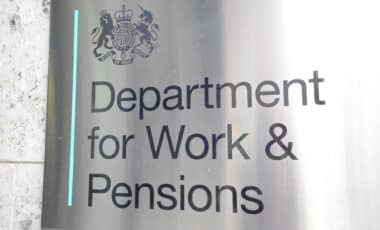A growing number of older workers are backing a petition that calls on the UK Government to exempt people aged 60 and over from National Insurance deductions, arguing that many face mounting financial difficulties before reaching State Pension age.
Current rules state that these contributions stop only at 66, rising to 67 between 2026 and 2028. The petition suggests this threshold is too high for those already dealing with age-related challenges such as arthritis and limited job flexibility.
According to DailyRecord, the campaign reflects broader concern about economic survival among older adults still active in the workforce but not yet retired.
Petition Highlights Financial Pressures on Older Workers
The petition, titled ‘exempt workers over 60 from National Insurance payments’, was created by Mike Haynes and published on the UK Parliament Petitions platform. Haynes argues the proposal would “make it easier financially for older people to survive” and reflects growing concerns about the economic realities for those nearing retirement age.
He added:
We are calling for this as many over-60s are struggling to survive due to what we believe has been incompetent government spending over the past 30 years.
If the petition receives 10,000 signatures, it will require a written response from the government—likely from HM Treasury. At 100,000 signatures, the issue may be considered for debate in Parliament.
How National Insurance Currently Works
As explained by the Chartered Institute of Taxation, National Insurance is a compulsory payment, similar in function to a tax, though officially classified as a social security contribution. It is deducted from employee wages, paid by employers, and also applies to self-employed individuals on their trading profits.
Once a worker reaches State Pension age, they usually stop paying NI contributions, even if they remain employed.
In cases of continued deductions, overpayments can be claimed back through HMRC. This system is designed to balance public revenues with retirement benefits, yet some believe the rules disadvantage older workers still in the labor market.
Frozen Personal Allowance Adds to Financial Burden
The petition aligns with a broader call to reform income taxation thresholds. Another petition, supported by more than 252,500 UK citizens, proposes raising the Personal Allowance from £12,570 to £20,000. Supporters argue this would help low-income workers and pensioners to
Get off benefits and allow pensioners a decent income.
Responding in Parliament, Treasury Minister James Murray clarified the government’s position:
The Government has no plans to increase the Personal Allowance to £20,000.
He elaborated:
The Government is committed to keeping taxes for working people as low as possible while ensuring fiscal responsibility and so, at our first Budget, we decided not to extend the freeze on personal tax thresholds.
Treasury Outlines Cost Concerns and Fiscal Policy
Minister Murray also addressed the economic implications of such a policy shift. He stated that raising the Personal Allowance to £20,000 would
Come at a significant fiscal cost of many billions of pounds per annum – which would Reduce tax receipts substantially, decreasing funds available for the UK’s hospitals, schools, and other essential public services that we all rely on.
He continued:
It would also undermine the work the Chancellor has done to restore fiscal responsibility and economic stability, which are critical to getting our economy growing and keeping taxes, inflation, and mortgages as low as possible.
The Treasury’s stance is that tax policy must remain under constant review and that any changes will be announced “at fiscal events in the usual way.”









